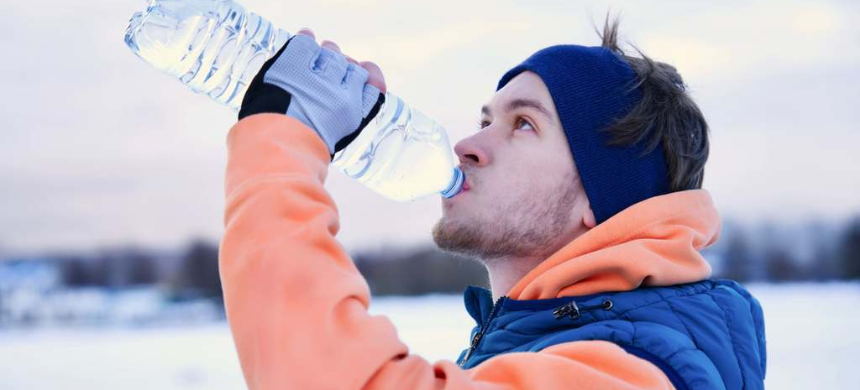Debunking the Winter Hydration Myth: Why Water Intake Matters in Cold Weather
As winter’s chill sets in and temperatures dip, a common misconception about hydration resurfaces: that our need for water diminishes in colder weather. Experts, however, categorically reject this idea, warning that inadequate water consumption during winter can pose serious health risks.
Winter Dehydration: A Hidden Danger
Medical professionals and nutritionists caution that dehydration in winter can be just as dangerous as in the summer months. Despite the body’s reduced thirst response in colder temperatures, experts stress that the need for consistent hydration remains year-round.
Read More: Is Coffee Beneficial for Heart Health?
One nutritionist emphasized, “People often assume that because they don’t feel thirsty in winter, they need less water. This is a dangerous assumption.”
The Risks of Substituting Water with Hot Drinks
Many people turn to hot beverages like tea or coffee to stay warm during winter. However, these drinks can exacerbate dehydration due to their diuretic effects, further depleting the body’s water stores.
Why Hydration is Crucial in Winter
Maintaining proper hydration throughout winter is essential for a range of health benefits. Adequate water intake helps regulate body temperature, keeping the body warm in the frigid cold. It also combats feelings of lethargy and fatigue, common in colder months.
Furthermore, water plays a crucial role in detoxifying the body by helping the liver and kidneys efficiently remove toxins. Without sufficient hydration, these vital processes can be hindered, leading to long-term health complications.
External Effects of Dehydration
Dehydration affects more than just internal health—it can also harm the skin. The cold, dry air of winter can strip moisture from the skin, resulting in dryness, cracking, and irritation. Proper hydration helps maintain skin elasticity and moisture levels, preventing these issues.
The Broader Impact of Dehydration
The consequences of neglecting hydration go beyond skin and energy levels. Chronic dehydration can impair cognitive function, cause joint pain, and increase the risk of infections. Over time, it can lead to serious complications such as kidney damage, respiratory issues, and dangerously low blood pressure.
Expert Advice: Stay Hydrated
To protect health during winter, experts advise prioritizing hydration even when you don’t feel thirsty. Developing healthy habits such as carrying a water bottle, consuming water-rich foods, and limiting dehydrating drinks like alcohol and caffeine can help ensure optimal well-being during the colder months.
Staying hydrated year-round is essential for maintaining both physical health and a well-balanced lifestyle.











